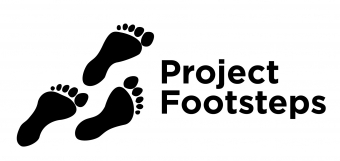- Education Topics
- Achievement Gap
- Alternative Education
- American Education Awards
- Assessment & Evaluation
- Education during COVID-19
- Education Economics
- Education Environment
- Education in the United States during COVID-19
- Education Issues
- Education Policy
- Education Psychology
- Education Scandals and Controversies
- Education Reform
- Education Theory
- Education Worldwide
- Educational Leadership
- Educational Philosophy
- Educational Research
- Educational Technology
- Federal Education Legislation
- Higher Education Worldwide
- Homeless Education
- Homeschooling in the United States
- Migrant Education
- Neglected/Deliquent Students
- Pedagogy
- Sociology of Education
- Special Needs
- National Directories
- After School Programs
- Alternative Schools
- The Arts
- At-Risk Students
- Camps
- Camp Services
- Colleges & Universities
- Counties
- Driving Schools
- Educational Businesses
- Financial Aid
- Higher Education
- International Programs
- Jewish Community Centers
- K-12 Schools
- Language Studies
- Libraries
- Organizations
- Preschools
- Professional Development
- Prom Services
- School Assemblies
- School Districts
- School Field Trips
- School Health
- School Supplies
- School Travel
- School Vendors
- Schools Worldwide
- Special Education
- Special Needs
- Study Abroad
- Teaching Abroad
- Volunteer Programs
- Youth Sports
- For Schools
- Academic Standards
- Assembly Programs
- Blue Ribbon Schools Program
- Educational Accreditation
- Educational Television Channels
- Education in the United States
- History of Education in the United States
- Reading Education in the U.S.
- School Grades
- School Meal Programs
- School Types
- School Uniforms
- Special Education in the United States
- Systems of Formal Education
- U.S. Education Legislation
- For Teachers
- Academic Dishonesty
- Childcare State Licensing Requirements
- Classroom Management
- Education Subjects
- Educational Practices
- Interdisciplinary Teaching
- Job and Interview Tips
- Lesson Plans | Grades
- Professional Development
- State Curriculum Standards
- Substitute Teaching
- Teacher Salary
- Teacher Training Programs
- Teaching Methods
- Training and Certification
- For Students
- Academic Competitions
- Admissions Testing
- At-Risk Students
- Career Planning
- College Admissions
- Drivers License
- Educational Programs
- Educational Television
- High School Dropouts
- Higher Education
- School Health
- Senior Proms
- Sex Education
- Standardized Testing
- Student Financial Aid
- Student Television Stations
- Summer Learning Loss
Project Footsteps

Basic Information
Address: 1900 Hennepin Ave. S
Minneapolis, MN 55403
Phone Number: 612-353-6927
Email: info@projectfootsteps.org
Director: Mike Jackson
Additional Information
Population Served: 5356
Ages for Volunteer: 14+ years old
Hours of Service: Depends
Mission Statement:
To inspire, empower, and prepare youth and community to be agents of change, social leaders, and volunteers.
Program History:
Project Footsteps (PF) works to keep its microscope on possibility and potential; our children and our community. PF realizes that as a community the very degree of our investments in young people will predict the very ability of our young people to thrive and be resilient. PF understands that every day creates a new opportunity for us to tell the children in our lives and in our communities that they’re important, irreplaceable, and valuable. We must challenge them to think critically about themselves and their relationship to their community. We must teach them to develop strategies to either join at the table or create their own. More importantly, to have a direct impact on bettering their communities, their schools and their world.
In 2009 forty PF staff and volunteers conducted over fifty-five program experiences that inspired, empowered and prepared 1,800 young people from all across the Twin Cities and surrounding suburbs to have a direct impact in their community. Though PF has a unique position to accomplish this work, we understand that it is imperative to sustainability that we identify and successfully present entry points for community members to take part in what should be natural; caring for our children.
Originally from the south side of Chicago, Kyle Rucker founded Project Footsetps in August of 2005, in his sophomore year at the University of Minnesota. Till this day, the reasoning behind initiating this effort remains consistently basic; our young people must take ownership of bettering their communities, themselves and their worlds. In the spring of 2006 Mike Jackson, from Welch, MN, currently Director of Business and Operations for PF, joined the team as PF’s first contracted program facilitator. Since then Kyle and Mike have built PF into an organization that reaches nearly 2,000 participants annually.
In 2006 Mike and Kyle decided that not only will PF empower and prepare young people to be agents of change and social leaders, but PF will also exemplify resourcefulness by intentionally engaging more volunteer commitments, in-kind services, and donations. PF has been able to provide quality and life changing program experiences to over 4,000 young people throughout the Twin Cities on a very humble budget.


